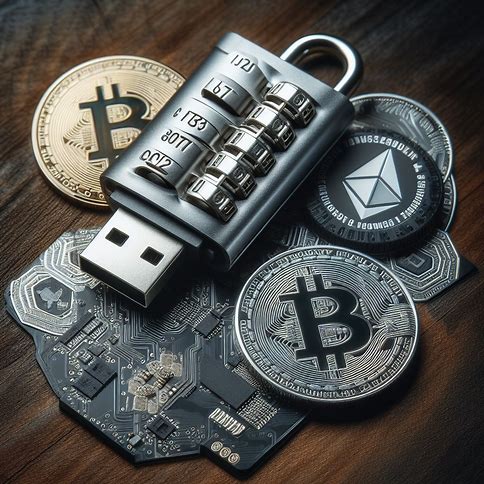How to protect your cryptocurrencies from hackers
Cryptocurrencies have changed how we handle money, making transactions safe and without needing a central authority. But, with more people using digital money, there’s a risk of hackers trying to steal it. In this blog post, we’ll talk about ten important things you can do to keep your cryptocurrencies safe from hackers.
1. Use Hardware Wallets
Hardware wallets, like Ledger or Trezor, give you extra protection by keeping your private keys offline. Unlike software wallets, which are online and vulnerable to malware and hackers, hardware wallets are much safer. They’re essential for anyone serious about investing in cryptocurrency.
2. Enable Two-Factor Authentication (2FA)
Two-factor authentication adds an additional step to the login process, requiring a unique code generated by an app or sent via SMS. Enabling 2FA on your cryptocurrency exchanges and wallets significantly reduces the risk of unauthorized access.
3. Keep Your Software Up-to-Date
Regularly update your operating system, antivirus software, and cryptocurrency wallets to ensure you have the latest security patches and features. Hackers often exploit known vulnerabilities in outdated software to gain access to your system.
4. Use Strong and Unique Passwords
Create strong, unique passwords for each of your cryptocurrency accounts. Avoid using the same password across multiple platforms, and consider using a password manager to generate and store complex passwords securely.
5. Be Wary of Phishing Scams
Phishing scams are when hackers try to fool you into giving away important information. Always check the website addresses carefully, and don’t click on links or download things from people you don’t know.
6. Avoid Public Wi-Fi
Public Wi-Fi networks are often unsecured and can be easily compromised by hackers. Refrain from accessing your cryptocurrency accounts or making transactions while connected to public Wi-Fi. If you must use public Wi-Fi, use a reliable VPN to encrypt your connection.
7. Diversify Your Holdings
Don’t keep all your eggs in one basket. Spread your cryptocurrencies across multiple wallets and exchanges to minimize the impact of a potential hack. By diversifying your holdings, you can limit your losses in the event of a security breach.
8. Enable Withdrawal Confirmations
Many cryptocurrency exchanges offer the option to enable withdrawal confirmations via email or SMS. Turning on this feature adds an extra layer of security, preventing unauthorized withdrawals from your account.
9. Regularly Monitor Your Accounts
Keep a close eye on your cryptocurrency accounts and regularly check for any suspicious activity. Set up notifications for account logins and transactions, and promptly report any unauthorized actions to the relevant exchange or wallet provider.
10. Educate Yourself
Be aware of the latest tips to stay safe and the newest dangers in the cryptocurrency world. Follow trusted websites, join online groups, and keep learning to stay ahead of hackers.
Key Takeaways:
- Use hardware wallets for secure offline storage of your cryptocurrencies
- Enable two-factor authentication on all your accounts
- Keep your software up-to-date and use strong, unique passwords
- Be cautious of phishing scams and avoid using public Wi-Fi for transactions
- Diversify your holdings and enable withdrawal confirmations
- Regularly monitor your accounts and educate yourself on security best practices
FREQUENTLY ASKED QUESTION
1. What should I do if I suspect my cryptocurrency account has been hacked?
If you suspect your account has been compromised, immediately change your passwords, enable two-factor authentication, and contact the exchange or wallet provider for further assistance. Report any unauthorized transactions and provide as much information as possible to help with the investigation.
2. Are hardware wallets necessary for everyone?
While hardware wallets provide the highest level of security, they may not be necessary for everyone. If you’re dealing with smaller amounts of cryptocurrencies or don’t plan on holding them long-term, a secure software wallet may suffice. However, if you have significant investments or plan on holding your cryptocurrencies for an extended period, a hardware wallet is highly recommended.
3. How often should I update my cryptocurrency wallet software?
It’s essential to keep your wallet software up-to-date to ensure you have the latest security features and patches. Most wallets will automatically notify you when an update is available. As a general rule, check for updates at least once a month and whenever a new version is released.










